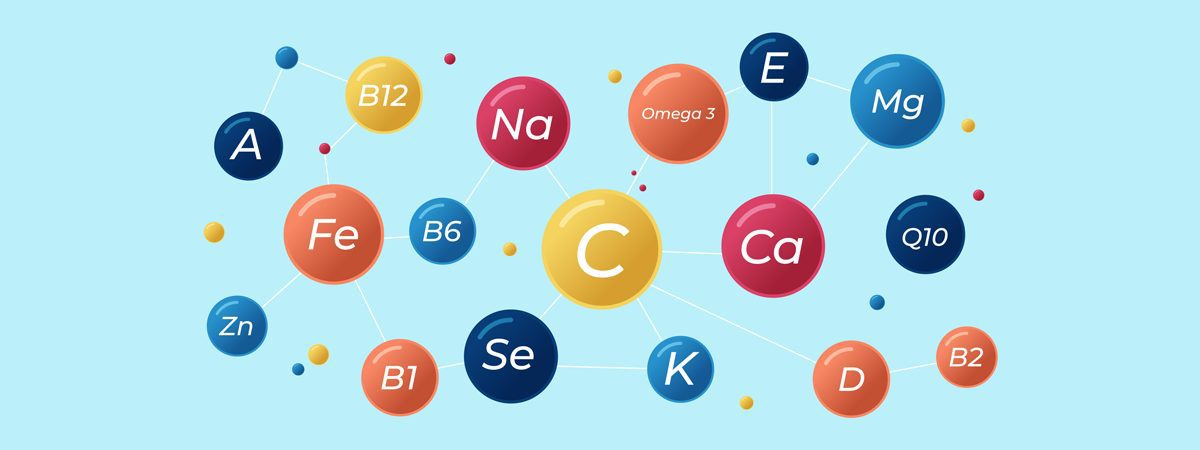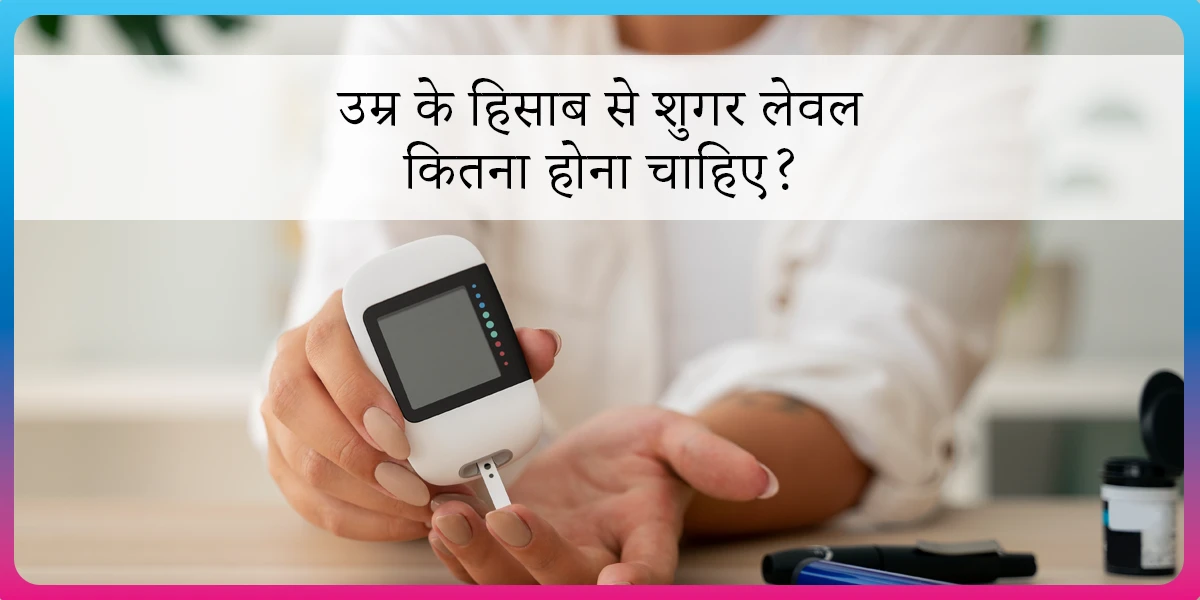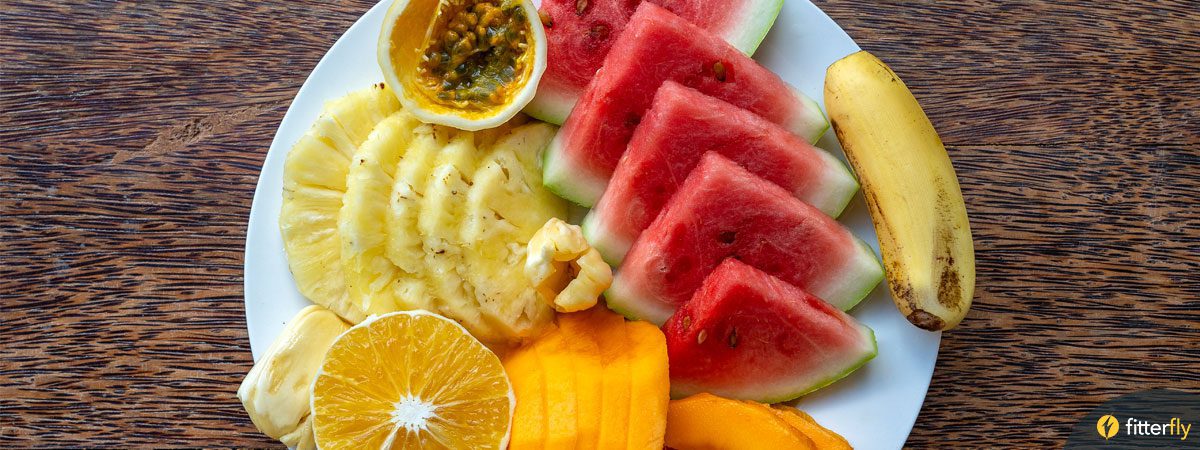Importance of Vitamins and Minerals for Managing Diabetes

Vitamins and minerals for diabetes
Vitamins and minerals play a very crucial role in the metabolism of glucose in your body. This is why, it is important to understand the link between these micronutrients and microminerals in connection to diabetes and your overall health.
Micronutrients and the diabetes connection
One of the major groups of nutrients that your body needs is micronutrients. Within these, the most important ones are vitamins and minerals.
Depending on the type of diabetes you have, and the medications you are taking, along with your diet plan and exercise routine, adding certain vitamins and minerals may be more beneficial for your diabetes.
This is because, certain types of vitamins and minerals act as anti-oxidants and can help in preventing deterioration of your diabetes, and may help prevent other health complications that may arise as a side effect of diabetes.
To know your chances of Diabetes reversal, take the Diabetes Reversal TestDiabetes Reversal
Calculator
Functions of micronutrients and health benefits
Micronutrients are basically needed in smaller quantity by the body as compared to macronutrients, hence the term ‘micro’.
In most cases, you naturally obtain micronutrients from the foods that you eat on a daily basis. Different foods have different quantities of vitamins and minerals, so it is important to understand what you are eating and have an adequate amount of each food type.
Vitamins and minerals help in:
- Boosting your overall immunity
- Reducing oxidative stress
- Keeping your blood sugar levels within the stipulated range
- Preventing diabetes-related health complications
- such as diabetic nephropathy and neuropathy
- Preventing or reduce insulin resistance
- Preventing and fighting off certain types of diseases
- Brain development and prevention of neurological health issues
- Preventing diabetes from worsening
- Boosting carbohydrate metabolism
Why are vitamins and minerals important for diabetes?
Vitamins and minerals can be divided into water-soluble and fat-soluble vitamins, and macro-minerals and trace minerals. These are important in managing diabetes, as they are known for their anti-inflammatory as well as immune-modulatory roles.
They can help in the overall improved functioning of the immune system and help prevent progression of diabetes.
Water-soluble vitamins and their role in diabetes
Water soluble vitamins are the ones that can dissolve in water. These are not easily stored in your body, and, if consumed in excess, get flushed out of your body along with the urine you pass.
Here are some of the most common water-soluble vitamins and their health benefits:
1. Vitamin B1, also known as thiamine:
- Can improve glucose metabolism
- May reduce cardiovascular risk as a complication of diabetes
- Reduces oxidative stress
Foods rich in vitamin B1 include cereals, whole grains, dried beans, seeds, pulses, nuts, oranges, cauliflower, kale, eggs and potatoes.
2. Vitamin B2, also known as riboflavin:
- Can reduce the risk of type 2 diabetes in those who have prediabetes.
- It can also reduce any inflammation that may be caused due to oxidative stress.
- Vitamin B2 helps to convert energy from carbohydrates into fuel.
Foods rich in vitamin B2 include yogurt, soya, chicken breast, eggs and almonds.
3. Vitamin B3, also known as niacin:
- Helps in managing cholesterol levels and preventing or reducing cardiovascular complications as a result of diabetes.
- Very effective in reducing levels of total cholesterol, including LDL (bad cholesterol) and triglycerides, and increasing HDL (good cholesterol).
- Helps in producing energy from the foods that you eat and using it through your body.
- Research on the effects of niacin in larger doses for those with diabetes is still somewhat divided, especially as to the dosage, so make sure you speak to your healthcare provider and understand about it in more detail.
Foods rich in vitamin B3 include chicken liver, chicken breast, salmon, avocado, peanuts, anchovies, mushrooms, whole wheat and brown rice.
4. Vitamin B5, also known as pantothenic acid:
- It is essential in synthesis of fatty acids.
- Improves overall metabolism.
- Helps your body convert energy from food faster into blood sugar and converts it into fuel faster.
Foods that are rich in vitamin B5 include milk, yogurt, chicken, broccoli, whole grains, tomatoes, avocado and mushrooms.
5. Vitamin B6, also known as pyridoxine:
- Vitamin B6 helps your body to release sugar from the carbohydrates that are stored in the body and convert them into energy.
- Improves nerve health which can prevent conditions such as diabetic neuropathy.
- It also reduces the risk of diabetic retinopathy.
- Taking this vitamin on a regular basis can also lower the progression of diabetic nephropathy.
Foods that are rich in vitamin B6 include oats, nuts, soybeans, bananas, lentils, bran, chickpea, seeds, chicken, chicken liver, milk, cheese, eggs, spinach, sweet potato, carrots, avocado, green peas, salmon and tuna.
6. Vitamin B7, also known as biotin:
- This vitamin plays a crucial role in the metabolism of glucose, amino acids as well as fatty acids.
- It improves glucose synthesis and improves the overall use of glucose in the body.
- It improves the storage of glucose and reduces the risk of insulin resistance.
Foods that are rich in vitamin B7 include non-fat milk, peanuts, yogurt, sweet potatoes, fortified soy milk, almonds, chicken liver, walnuts, seeds, cheese, broccoli, avocadoes and eggs.
7. Vitamin B9, also known as folate:
- Much needed for proper division of cells.
- Helps in creation of new cells.
- May reduce homocysteine levels.
- Reduce the risk of cardiovascular diseases in those with type 2 diabetes.
Foods that are rich in vitamin B9 include beetroots, turnips, lima beans, brussels sprouts, mustard greens, spinach, dark and leafy green vegetables, lady finger, broccoli, tomatoes, black eyed peas, chickpeas and oranges.
8. Vitamin B12, also known as cobalamin:
- Reduces risk or prevents the onset of diabetic neuropathy.
- Helps in reducing or managing pain related to diabetes related health conditions.
Foods rich in vitamin B12 include fortified breakfast cereals, tofu, chicken liver, tuna and salmon.
9. Vitamin C, also known as ascorbic acid:
- Vitamin C is a powerful antioxidant that boosts your body’s overall immunity.
- It lowers the levels of sorbitol, a type of sugar that can get accumulated in the cells of nerves, eyes and kidneys and cause damage.
- It prevents chances of diabetic neuropathy, diabetic retinopathy and diabetic neuropathy.
- Also helps in reducing blood pressure and reduce the risk of cardiovascular health complications related to diabetes.
Foods that are rich in vitamin C include leafy green vegetables, spinach, kale, citrus fruits and vegetables, bell peppers, capsicum, kiwi, broccoli, strawberries and tomatoes.
Don’t struggle alone & get the expert care you deserve
Fat-soluble vitamins and their role in diabetes
Fat soluble vitamins are the ones that do not get dissolved in water. These get absorbed in your body when you are having another source of fat. Once you eat foods that are rich in their fat content, they get stored in your liver and fatty tissues to be used later for energy.
Here are some of the most common fat-soluble vitamins and their health benefits:
1. Vitamin A:
- Ensures proper functioning of all organs.
- Important for proper vision and keeping vision issues as a result of diabetes at bay.
- Helps beta cells secrete insulin as needed.
- Improves metabolic function.
- Regulates proper discharge of insulin.
Foods that are rich in vitamin A include dark green leafy vegetables, spinach, kale, sweet potatoes, broccoli, black eyed peas and carrots.
2. Vitamin D:
- Boosts immune function.
- Boosts the production of peptides that destroy germs, bacteria and virus and reduce the risk of diabetes related gum disease or diabetic ulcers.
- Helps body allow calcium better and makes gums and teeth stronger, thus reducing oral health complications as a result of diabetes.
Foods rich in vitamin D include eggs, milk, fatty fish and eggs.
3. Vitamin E:
- Helps immune system to be strong and ward off infections.
- Acts as an antioxidant to prevent any cellular damage.
- Improves the body’s glucose control.
- Prevents or reduces the risk of free radical damage to blood vessels and nerves, which can often be a condition in diabetes.
- May reverse damage done to nerves as a result of diabetes.
- Prevents and reduces risk of diabetic cataracts and atherosclerosis.
Foods that are rich in vitamin E include dark leafy green vegetables, nuts and seeds, vegetable oils, peanut butter, wheat germ and avocadoes.
4. Vitamin K:
- Helps in proper bone development and bone health.
- Helps activate proteins and calcium that can reduce the risk of fractures.
Foods that are a rich source of vitamin K include eggs, chicken liver, sprouts, spinach, kale, leafy green vegetables and broccoli.
Health complications with micronutrient deficiency
- Deficiency in micronutrients can play a role in the progression of diabetes as it can lead to insulin resistance.
- This is because most micronutrients boost immune health and prevent the loss of beta cells, which make insulin.
- Having a diet rich in micronutrients will help the pancreas produce more insulin.
- As a result, it will prevent the risk of insulin resistance and also help in regulating the levels of blood glucose in the body.
Macro-minerals and the diabetes connection
Macro-minerals are needed in a larger quantity as compared to trace minerals so that the different organs of the body can perform their functions properly.
1. Calcium:
- Reduces the risk of osteoporosis, especially due to diabetes.
- May reduce diabetes from progressing.
Food sources include tofu, sardines, paneer, spinach, eggs and yogurt.
2. Magnesium:
- Helps regulate blood sugar levels
- Improves carbohydrate metabolism
- Manages insulin secretion.
- It helps your body to make more insulin and aids cells in using it effectively.
Food sources include spinach, kale, dark green leafy vegetables, sunflower seeds, flaxseeds, pumpkin seeds, cabbage, sweet potatoes, oats, barley, whole wheat, quinoa, bananas, avocadoes, nuts and sweet potatoes.
3. Phosphorus:
- Helps reduce postprandial glucose as well as insulin levels.
- Reduces insulin sensitivity index.
Foods rich in phosphorus include chicken liver, seafood, nuts and seeds and whole grains.
4. Chloride:
- Helps regulate blood sugar.
- May help reverse insulin resistance.
Foods that are good sources of chloride include olives, celery, lettuce, cabbage and tomatoes.
5. Potassium:
- Helps your body produce enough insulin.
- Keeps blood sugar levels in check.
Foods that contain a good amount of potassium include apricots, raisins, prunes, fortified orange juice and fortified milk, chicken breast, salmon, spinach, broccoli, lentils, beans and bananas.
6. Sulphur:
- Helps reduce oxidative stress.
Foods rich in sulphur include garlic, cauliflower and broccoli.
7. Sodium:
- It helps to maintain a good balance between the fluids in the body.
- Helps keep blood pressure or hypertension and blood volume within desired levels.
Sodium is mainly found in salt, but make sure you understand your sodium intake levels from your healthcare provider and do not take too much sodium, as an excess can lead to various health complications.
Trace minerals and the diabetes connection
Your body needs trace minerals in small quantities and plays an important role in carrying out various functions in the body.
1. Iron:
- Iron makes up parts of many important proteins in your body that aid in diabetes management and other health issues.
- Not having enough iron can increase the risk of diabetic nephropathy.
- Iron deficiency can also lead to celiac disease, especially in those who have type 1 diabetes.
Foods that are rich in iron include chicken liver, eggs, salmon, oatmeal, seeds, whole grains, lentils, raisins, apricots, prunes, tofu, legumes, beans, spinach, broccoli, cabbage, cauliflower and brown rice.
2. Zinc:
- Zinc boosts your body’s immune function and helps prevent various infections associated with diabetes.
- It may also help in glycaemic control.
- Zinc can reduce the risk of diabetic neuropathy, diabetic nephropathy and diabetic macular edema.
Foods high in their zinc content include pumpkin seeds, cheese, whole grains, sesame seeds, almonds, milk and legumes.
3. Iodine:
- When taken in controlled amounts, iodine can help in managing blood glucose levels as well as manage blood lipid levels.
- Higher intake of iodine can have adverse effects on your diabetic and overall health, so understand your nutritional requirements from your diabetes healthcare team.
Iodine rich foods include yogurt, milk, cheese and eggs.
4. Copper:
- Copper helps manage your overall metabolism and improves digestive health, which is especially beneficial for those with diabetes.
- Including copper in your regular diet will also help your body in absorbing nutrients better from the other foods that you eat.
- It can help to reduce peak blood glucose at certain times.
Copper is commonly found in food sources such as chicken liver, dark leafy greens in salads, seeds, nuts and mushrooms.
5. Manganese:
- May improve the secretion of insulin in the body.
- It can also help to improve glucose metabolism.
Manganese rich foods include almonds, nuts, dark leafy green vegetables, spinach, whole grains, legumes, beans, brown rice and pineapple.
6. Fluoride:
- Fluoride in your diet can help to reduce the risk of dental cavities.
- This is especially helpful in preventing diabetes-related oral hygiene complications.
Foods that contain fluoride include raisins, grapes and spinach.
Do you need to consume supplements daily?
You may think that most vitamins and minerals also come in a pill-form, and all you need to do to get your adequate dosage is to have a supplement every day. But did you know that your body gets the best and richest source of these nutrients and absorbs them best when you take them from natural foods?
If you do have a vitamin or mineral deficiency, your doctor will make an assessment and prescribe a dosage based on your deficiency levels as well as your overall health. Do not pop a supplement daily without consulting your doctor.
Why? Read below.
What supplements can spike blood sugar?
Most people believe that supplements are healthy, but did you know that some supplements can have a negative impact on your blood sugar levels?
Certain supplements, when combined with your other medicines or health issues, can lead to hypoglycaemia, while some may even lead to hyperglycaemia.
Before taking any supplements, and especially the following, make sure you speak to your doctor about it:
- Vitamin E
- Chromium
- Niacin
No matter what you do, always make sure you run it by your diabetes healthcare team first. Whether you are adding a new food source in your diet, or thinking of trying out a new supplement, speak to your doctor first and understand the benefits or any potential risks that may be associated.
References:
- https://pubmed.ncbi.nlm.nih.gov/20536779/#:~:text=Vitamins%20and%20minerals%20play%20an,2%20diabetes%20mellitus%20(DM)
- https://academic.oup.com/nutritionreviews/article/68/6/341/1828517
- https://www.diabetes.co.uk/vitamins-supplements.html
- https://www.diabetes.org/healthy-living/recipes-nutrition/vitamins-diabetes
- https://www.healthcentral.com/slideshow/basic-6-vitamins-and-minerals-diabetes
- https://diabetesjournals.org/spectrum/article/22/4/214/2326/The-Role-of-Micronutrients-in-Managing-Diabetes
- https://www.healthline.com/nutrition/micronutrients#bottom-line
- https://www.nutri-facts.org/en_US/news/articles/micronutrients-and-diabetes-mellitus.html
- https://www.heighpubs.org/hfns/afns-aid1013.php
- https://www.hindawi.com/journals/anemia/2015/354737/
- https://eje.bioscientifica.com/view/journals/eje/181/3/EJE-19-0156.xml
- https://www.cambridge.org/core/journals/british-journal-of-nutrition/article/vitamin-d-supplementation-reduces-insulin-resistance-in-south-asian-women-living-in-new-zealand-who-are-insulin-resistant-and-vitamin-d-deficient-a-randomised-placebocontrolled-trial/34B0A41092F2CACD17A44D4904D514C4
- https://dmsjournal.biomedcentral.com/articles/10.1186/1758-5996-5-8#:~:text=Animal%20studies%20have%20shown%20that,insulin%20receptor%20gene%20%5B13%5D.
This blog provides general information for educational and informational purposes only and shouldn't be seen as professional advice.
Don’t struggle alone & get the expert care you deserve













